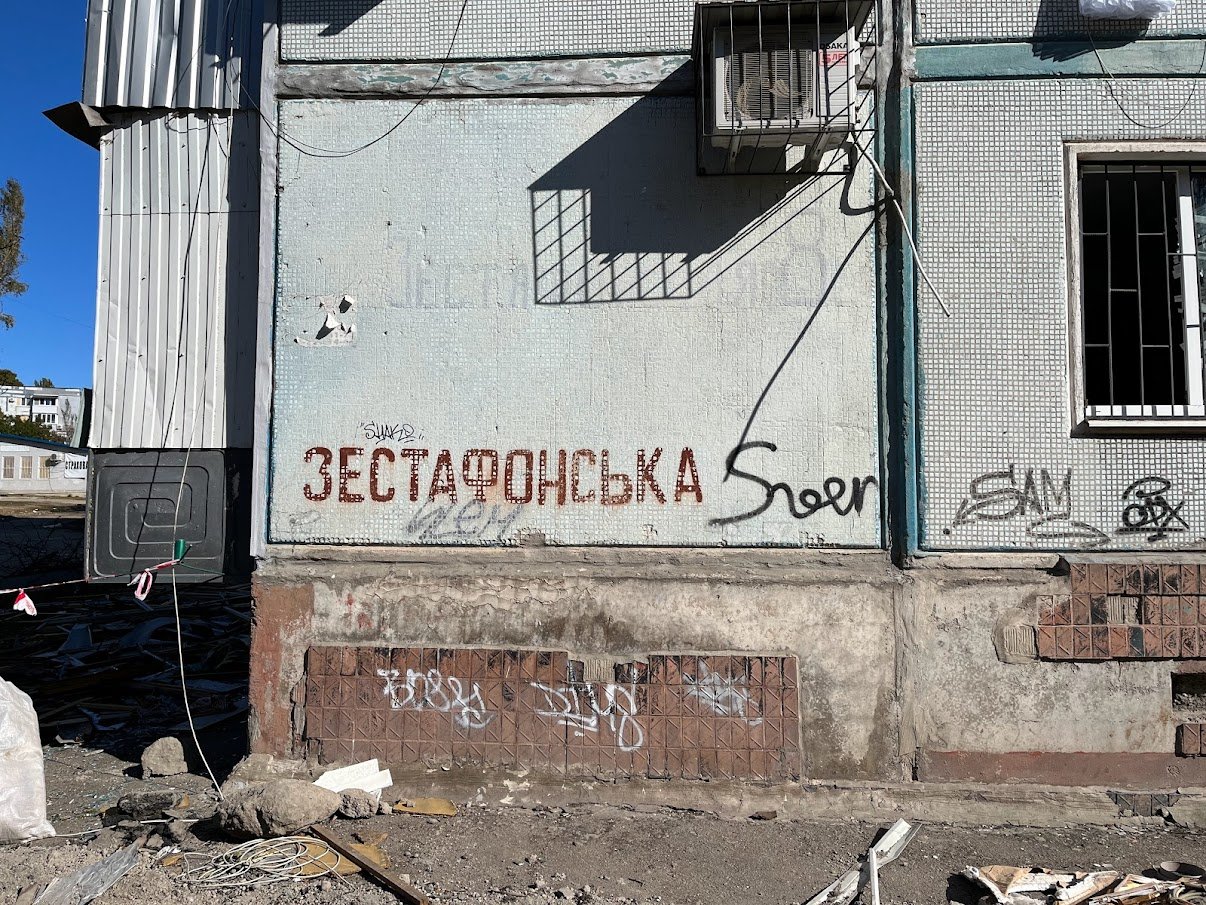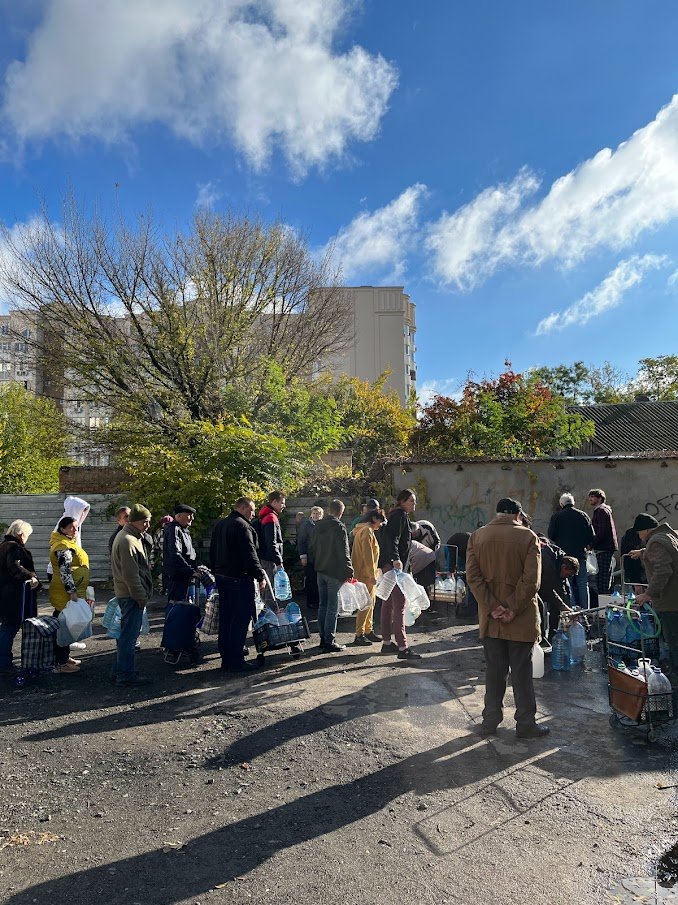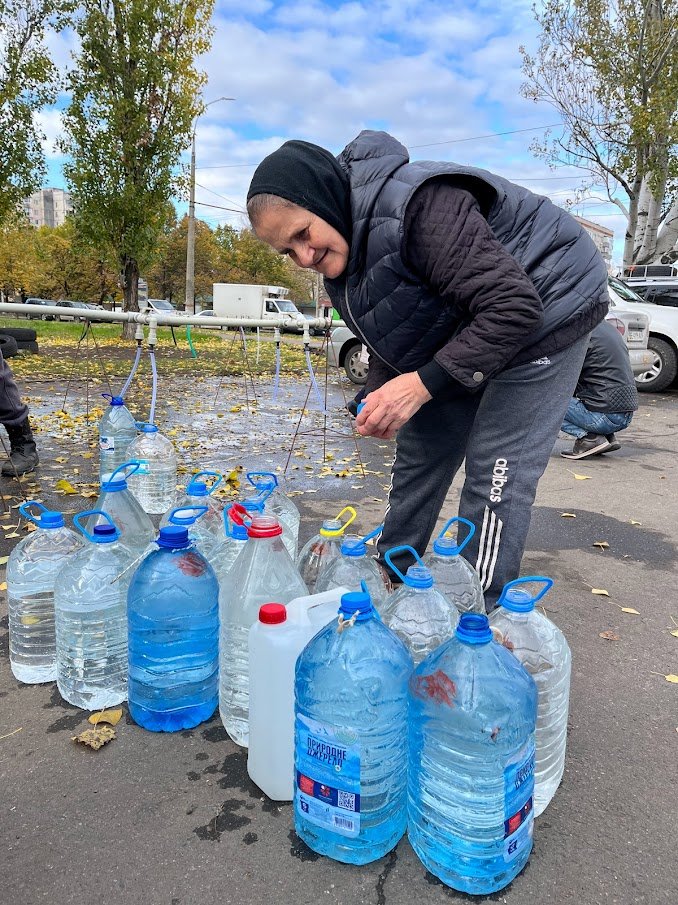Six weeks in Ukraine for Channel 4 News
Over the course of two deployments to Ukraine I produced daily coverage for the evening news, taking care of outside broadcasts by presenter Matt Frei, daily news pieces and live hits from reporter Paraic O’Brien and the creation of several features I’m really proud of covering suspected war crimes during occupation and the aftermath of deadly strikes on civilian infrastructure.
The anatomy of a suspected war crime in the village of Vysokopillya. Svitlana and her husband Serhiy were killed on the 1st of June, after Russian soldiers came looking for a woman who had reported a rape by their colleagues the week before.
I arranged for us to be in Novomyoklaivka on the day of the first Ukrainian post since occupation. Residents lined up to collect their pensions for the first time in 8 months. Valentyna in the post van drove through shelling to bring people their own money, in their own currency, in a region Russia had ‘annexed’ just months before. We met Yulia, the acting mayor of the village. Why acting? The previous one had fled and she had been unoficially appointed in his stead. Yulia wasn’t going to mention any of that but the elderly women around her were having absolutely none of her modesty and we were privileged to capture such a beautiful exchange.
We covered what happened when an anti-ship missile hit Number 8 Zestafonska Street. A Kh-22 is designed to take out an aircraft carrier. Instead, Russian forces aimed one at this residential apartment building in Zaporizhzhia. It split the entire block in two, killing fifteen people. We arrived as the survivors were allowed back in to salvage what they could. Olga and Volodymyr had lost almost everything, except their sense of humour. Julia from the emergency services found a neighbour’s cat and never misplaced her sense of personal style, blue falsies included. I remain astounded at the resilience we encountered everywhere we went
Life in recently liberated Mykhailivka, where residents are picking up the pieces as Russian forces still occupy the opposite bank of the river. They’re within sniper and artillery range but of more concern is the lack of electricity. We met Valentina and Volodymyr on a beautiful Autumn day, but the nights were already cold and everyone was worried about the winter. The residents told us that during the long months of occupation, resistance was met with brutality. Some escaped using a secret path along the river, but when the Russian soldiers in the village learned about it, they mined the path. The only other way out was further into occupied territory and eventually Russia.
Mykolaiv, where Russian forces blew up the city’s freshwater pipeline early in the war. Drinking water is trucked in every day and the council has had to start pumping salty water from the estuary through the pipes for everything else. Watch our report featuring the deputy mayor showing us how it’s rusting the pipes from the inside out.
And a couple more phone photos from the road. We produced a lot of work that I’m proud of but I’m also proud of our crew and how well we got along over the course of such long and stressful days and weeks
















